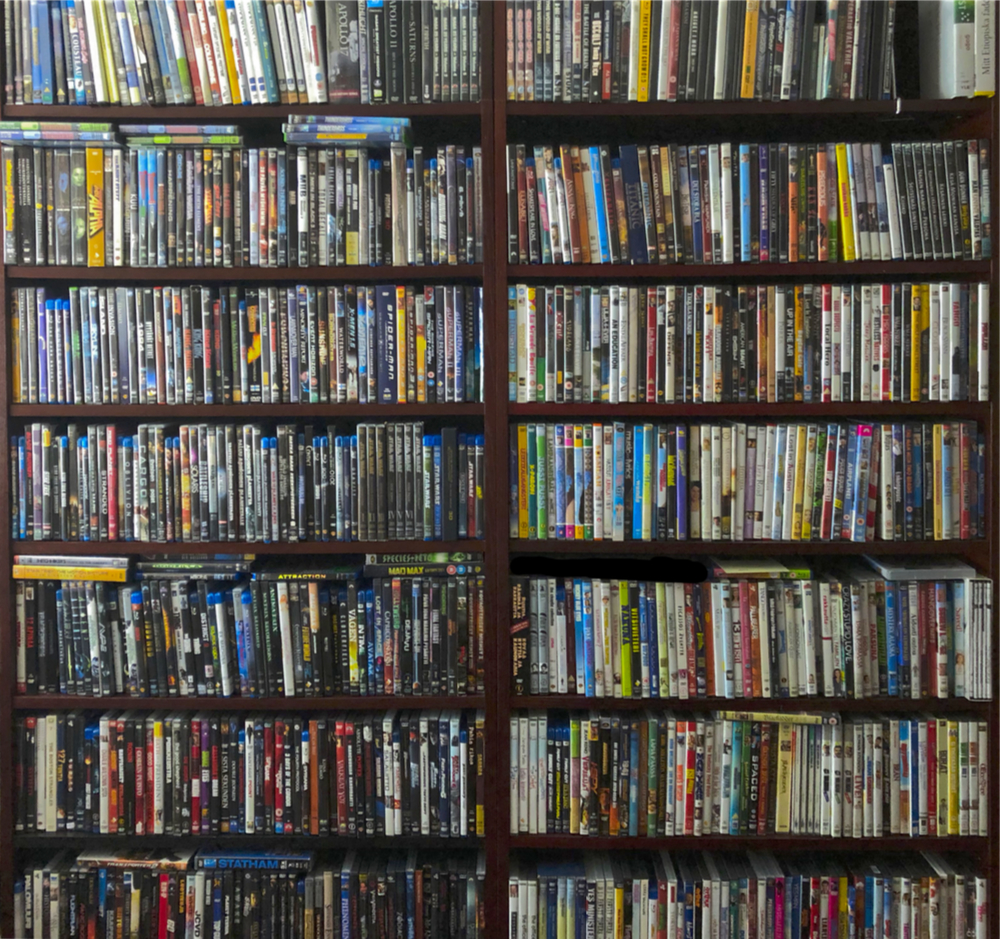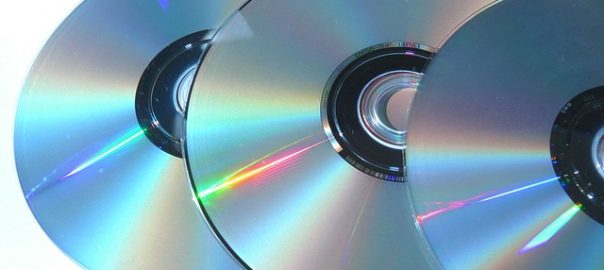Throughout my life I have been interested in technology, and I spend on average a couple of hours every day browsing different technology web sites, mainly those dealing with computing, content creation, movies, digital moviemaking, distribution, privacy and security – but also the more philosophical aspects of a world constantly online. My daily dose also includes podcasts that I listen to during my commutes on bicycle or in the tram.
I sometimes get a little surprised at technology editors and commentators: many seem so fascinated with online and streaming media that they sincerely believe physical media eventually will go away, totally. Many look forward to finally getting rid of reading books on ”dead trees”, or project that distribution over the net will very soon kill off all the clumsy and cumbersome discs – ”it’s really just a matter of time”.
I have to agree that there are a few advantages to online, non-physical media:
- speed in access
- speed in acquisition
Speedy access and acquisition is very tempting. You hear or read about an interesting book or movie, and with a couple of clicks and a minute later you can enjoy your purchase on your computer, tv or tablet. It also makes you feel very warm and fuzzy as the whole thing feels so ”green”: no manufacturing, no warehouse, no distribution, no retail. And thanks to the fact that the product itself doesn’t take up any physical space, it is also possible to collect an entire library of books and an extensive movie collection in your computer or on your tablet. Streaming movies don’t even take up valuable space on the computer. What’s not to like?
Well, maybe there are some things not to like:
1.
For a person like me, who owns a slightly larger than average movie collection, the capacity of DVD and Blu-ray discs still play a big role – no chance that I would start buying large hard disks to store downloadable digital copies (if I could even get them nowadays), or waste a lot of time to transcode and transfer my current collection with all the special features, documentaries and other extras. DVDs and Blu-rays also don’t run the same risks as magnetic or solid state drives: digital rot or even sudden total failure. An elaborate backup system would also be necessary.
Besides, my movie collection (and my books) are great talking pieces! How could anybody believe I’m a well-read person, or that I know anything about movies if I would just point to my Ipad and claim I have a thousand books and over a thousand movies in there? (Tip to singles: back when I was single I noticed that printed books on a book shelf and physical movies have great sex appeal.)
2.
Well, what about services like Itunes, Netflix or HBO? You buy or rent movies from Itunes, and on Netflix or HBO you get access to huge libraries of movies for a monthly fee – sort of a ready made movie collection. I’ll admit that I have bought a couple of films from Itunes, a few e-books from Amazon, and I currently have a Netflix subscription. But I don’t think I would ever rely on keeping all my movies and my books in the cloud. In the ever-changing markets, I simply do not trust any company’s ability to guarantee – even for a couple of years – true and unfettered access to the content I buy or subscribe to today. Their own terms of use also makes this very clear: most reserve the right to terminate their service at any time and for any reason. And due to corporate takeovers or changing licensing terms, they have to reserve the right to pull any offerings arbitrarily, which could result in movies or books suddenly being pulled from your devices. All without any explanation or compensation to you.
In reality, if you choose to ”buy” content online, you only buy the right to watch or read the thing several times (as opposed to one time if you ”rent”). And since you don’t really own anything at all, you can never give the content you bought to someone else as a gift, sell it on a secondary market (where is the flea market for used Itunes films?), or for that part, buy used content on flea markets, as I have extensively done to build my own movie collection. And your kids will never be able to inherit an e-book library or a web-based music and movie collection – they’ll have to buy everything all over again.
You may now understand why media companies suddenly like the idea of online distribution very much – even Disney is now getting in on the game with its own streaming service.
3.
Another, and perhaps even more worrying question in this regard, is privacy. If you buy e-books or stream online films, someone out there will know exactly everything about your reading and viewing habits. In benevolent cases, this leads to Amazon giving this data back to authors, so that they know at what page people quit their books, with the authors subsequently writing more ”easy-to-read” books. In the bad scenarios, this data collection becomes a huge privacy problem – especially in countries with less developed democracy traditions. But consider instead a printed book! Even if some bad regime somewhere would deem a certain book dangerous and therefore forbidden, it could still be bought anonymously with cash, hidden under the bed, and thrown in the garbage or burned when it’s read. Not so with e-books – the tracks will always lead straight to you.
4.
Speaking of burning a book, and what’s supposed to be green. In the end, all printed books (whether good or bad) have a heating value, which e-books will never have. The energy that is put into a paper book during its manufacture is thus stored in it, and can for instance be used in an emergency (please burn bad books and taxation statistics first!). Reading an e-book, on the other hand, almost in all cases require freshly produced energy. An even bigger benefit with printed books is that they do not require any technical arrangements or apparatus, which no one can guarantee will work after a hundred years. A printed book: just pick it up and read away.
Reports are now coming out that all the massive data centers distributing movies over the net (and the same movie over, and over, and over again) is an enormous and also rapidly growing part of the global energy consumption. Not to mention that streaming movies over the net is a stupendous waste of internet bandwidth. But playing a DVD or a Blu-ray even a hundred times in your home takes almost no energy at all, and requires no connection to the net.
So what kind of distribution is really green? Is it really getting rid of a vibrant retail and secondary market for movies and books, and instead going online? Comprehensive and reliable calculations are of course almost impossible to do, but I tend to lean to physical media being the more green thing. Physical media is simply inert by itself, and doesn’t consume any energy at rest.

I therefore sincerely hope that online and streaming media always will be an addition to physical media, not its replacement. There are encouraging signs. Paper books seem to be on the rise again (even if more and more are bought online and not in books stores), and people are even publishing new LP records in addition to CDs. This tells me that there will always be people who don’t subscribe to the idea that ”newer” automatically is ”better”. Their motivation may differ: it could be for the benefits I describe above, or it might be just nostalgia. Or why not technical interest: I think putting every frame of a full-length movie on a small, shiny disc in Ultra HD resolution truly is an incredible technical achievement, worthy of everyday celebration.
Future developments will probably not be as linear as many tech editors or commentators like to paint it: like some ongoing technological battle where a newer system always has to ”win” over an older. In today’s fragmented world, I believe it’s not that simple at all. Let’s just hope that there will be enough commercial interest to keep the physical content distribution go on forever.
